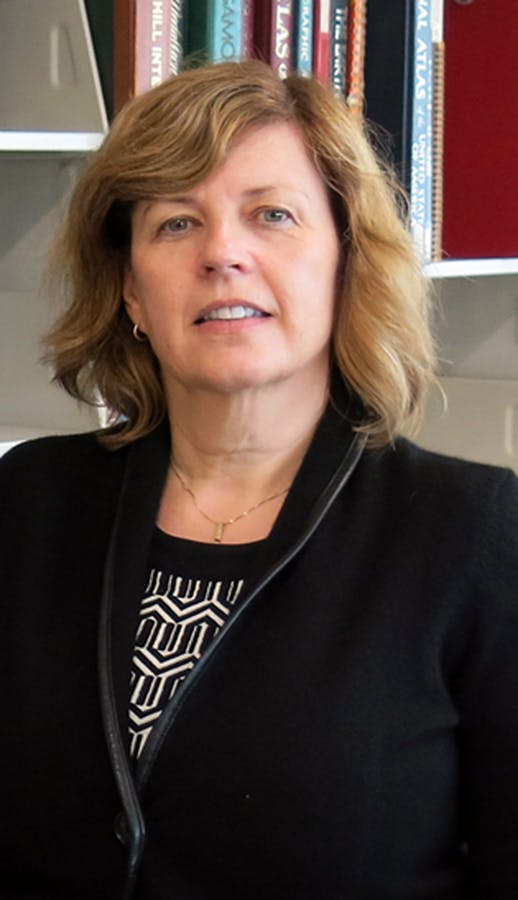Anne Gilliland, UCLA professor of information studies, presented keynote lectures on the social and ethical responsibilities of archivists and records managers toward society’s least empowered individuals in September at both the national conference of the Archives and Records Association of New Zealand (ARANZ) in Auckland, and an invited public lecture on the occasion of the 25 Records Continuum Research Group 25 anniversary at Monash University in Melbourne, Australia. Her presentations on “Permeable Binaries, Societal Grand Challenges, and the Roles of the Twenty-First Century Archival and Recordkeeping Profession” addressed the archival field’s social responsibility toward marginalized populations and the need for archival professionals to respond proactively to large-scale societal challenges such as forced migration and ongoing refugee crises.
Gilliland, whose research addresses cultural and community information systems, community-based archiving, and human rights issues in relation to archives and records in post-conflict situations, highlighted the challenges to supporting inclusion in the Digital Age, and criticized the failure of recordkeepers to meet the principles laid out in the UNESCO Universal Declaration on Archives of 2011 “for protecting citizens’ rights, for establishing individual and collective memory, for understanding the past, and for documenting the present to guide future actions.”
“The archival and recordkeeping community collectively, do not protect all citizens’ rights, at least certainly not to an equal or even equitable extent,” she argues. “We still concentrate on the interests of our own institutions and nations and have not addressed those in crisis who move across or fall between them. We fail so-called ‘non-citizens’ who fall off the archival radar: migrants, refugees, the displaced, the undocumented. The effects of these failures can stretch across generations and are felt particularly hard by women and children.”
Gilliland states that standard recordkeeping practices are too complex and inaccessible for those who most need to access or preserve records that are essential to their own lives and recovery. She made an urgent case for recordkeepers and academics to use digital records and archival methods in support of all citizens of the world, especially the displaced and dispossessed.
“We should not just be contemplating the general liberation of the archives through digital affordances, but we should be doing so also with a specific aim to enfranchise and recognize the rights and needs of those whom archives and their principles have historically systematically failed or disempowered,” says Gilliland.
Professor Gilliland taught a human rights archives course in memory and the effects of world diasporas with Professor Hariz Halilovich, a visiting scholar from Monash University. Her essay, “Memory Politics and Reconciliation in the Wake of Ethnic Conflict: A Northern Irish Example,” was recently published in “Archives, Records and Memory: Selected Papers From the Conference and School on Records, Archives and Memory Studies” (M. Willer, A.J. Gilliland, and M. Tomić, eds. (Zadar: University of Zadar Press, 2015).
Gilliland will present her paper, “Evidence and Exigency: Reconstructing and Reconciling Records for Life After Conflict” at the symposium, “Refuge(e)s in the Cities: Post-conflict Trauma, Gendered Violence and Social Inclusion,” hosted by the Centre for Global Research at RMIT University in Melbourne later this month.
